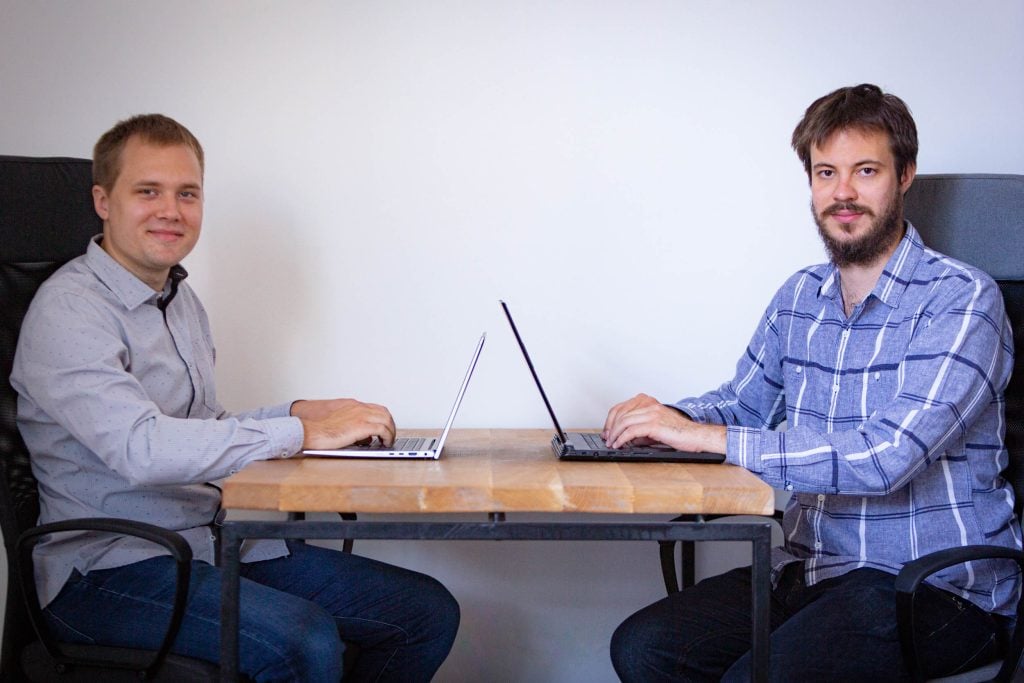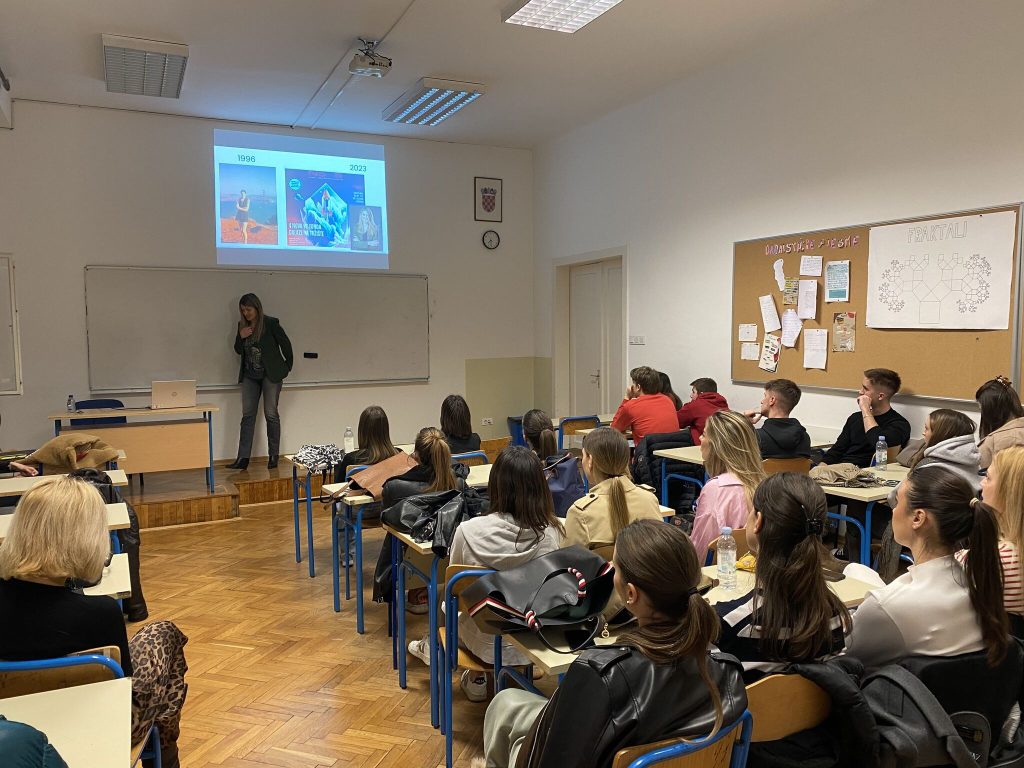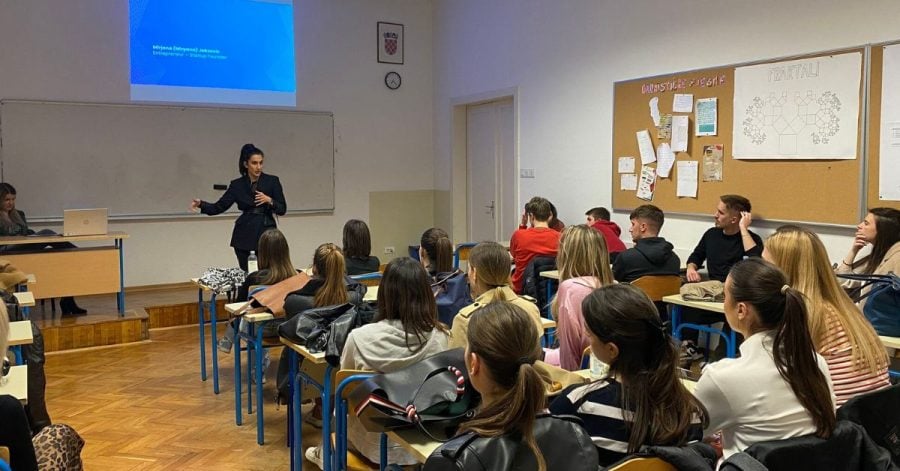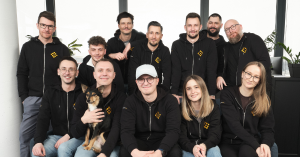Croatian entrepreneurs Marin Smiljanic and Matej Ferencevic’s success story didn’t begin in the business office. It started in their high school classroom in the capital of Zagreb. It was back when Marin, being four years older than Matej, became his mentor and shared his knowledge on subjects such as math and computer science.
Over time, a bond developed between them that would eventually lead to the founding of their AI startup Omnisearch in 2021, which has attracted more than $450K in funding so far. Omnisearch is an AI-powered search engine tool for online courses.
“Marin was my mentor in high school and that’s the main connection. And I think that this idea was great – at this point the mentors still have some free time and they can teach people. So it’s a pretty beneficial system – it’s like your teacher is also your friend, so there isn’t that much of a difference between your age, and there is that sense of authority which can also be respected,” Matej tells The Recursive.
“They were probably one of the best generations when it comes to the combination of great algorithmic skills, but also real world skills and a willingness to develop real stuff. Because you’ll see a lot of smart people in other generations, but I think what sets them apart is they wanted the industry experience, and they were hungry for it,” Marin fondly recalls of his mentoring days.

Such a mentoring system has been in place in the country for the past 20 years. Later on, Matej had also taken up the mantle and he also taught the new generations. One particular observation that he’s had through the years though, is that countries around Croatia have yet to implement such a system.
“I’m still involved in all of the programming competitions in Croatia, and we’ve also had workshops where we brought people from our neighboring countries and also those from former Yugoslavia. Basically we discussed the different approaches that we have taken, and it turned out that all other countries are mainly based on the handful of enthusiasts that are keeping this whole system apart,” Matej explains.
For Croatia though, mentoring partnerships such as the one Marin and Matej had have also contributed to the wider success of its education system and creating a pipeline of various high skilled talent.
“The high school I was going to now has 1,600 students and out of them around 75 percent attend an extracurricular activity such as chess, chemistry, IT, physics, history, and so on,” Matej points out.
Along with measures such as introducing computer science to elementary schools, this had had a tremendous effect on motivating students to become a part of the IT industry. Additionally, under the guidance of the more experienced mentors such as Marin and Matej are now, young and up-and-coming entrepreneurs are able to develop their skills and learn to navigate the challenges of starting a business.
Learning about AI at a young age
Aside from the mentors, Croatian tech organizations and nonprofits are also doing their part when it comes to the education of Croatian youth about different tech sectors. The Croatian AI Association (CroAI) is one of them – consisting of more than 330 members, and two core groups: community and education.

The organization’s education programme started a month ago in several high schools across the country, with students having the opportunity to hear more about AI startups and a variety of different job opportunities in the industry.
“Our idea was to show kids what can be done in Croatia. The project started a month ago and we reached the nine schools, more than 450 students, we’ve had more than 20 lecturers and we can tell that the students are really enthusiastic. Most of them even can’t believe the success stories that come from Croatia, because they have never seen those stories on the mainstream media,” CroAI’s executive director Martina Silov tells The Recursive.
The feedback that CroAI has been getting from the professors at these schools has been tremendous as well – since it’s not possible to keep changing an existing curriculum to keep up with the pace of how technology is developing, then the next best thing is for the students to hear and learn from experts in these industries.
“Recent studies have shown that you would have to change the curriculum every six to eight months, because technology is moving so fast. But because you can’t change it so fast and it doesn’t make sense, what you can do as a professor is tell your students – okay, I can’t teach you any more from this and I am not an expert in everything – but I can bring in the best people from the industry to give you a lecture on the topic. And that idea that we had behind this was to connect these tutors, mentors, so startup founders, project managers, managers, to schools, and create some kind of curriculum of outside activity, a case study,” Silov says.
According to Silov, the programme is also here to show students that there are lots of different positions where they can be successful in.
“They can be great engineers or product managers or just managers. You don’t have to be an engineer to be in the tech sector, and that’s really crucial what we’re trying to tell these kids – that you don’t have to be an engineer, a mathematician or something like that. You can be a great product manager, you can be a great designer, you can be a great project manager. There’s so many positions needed in the tech sector and to achieve all those goals we can bring you that sparkle and show you that it’s possible,” Silov concludes.








